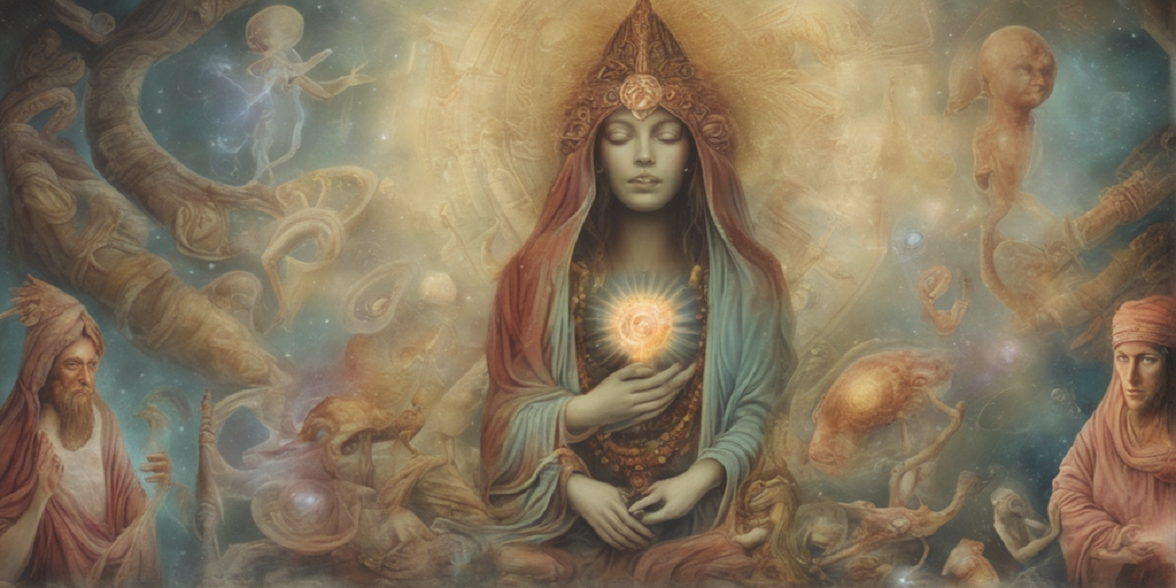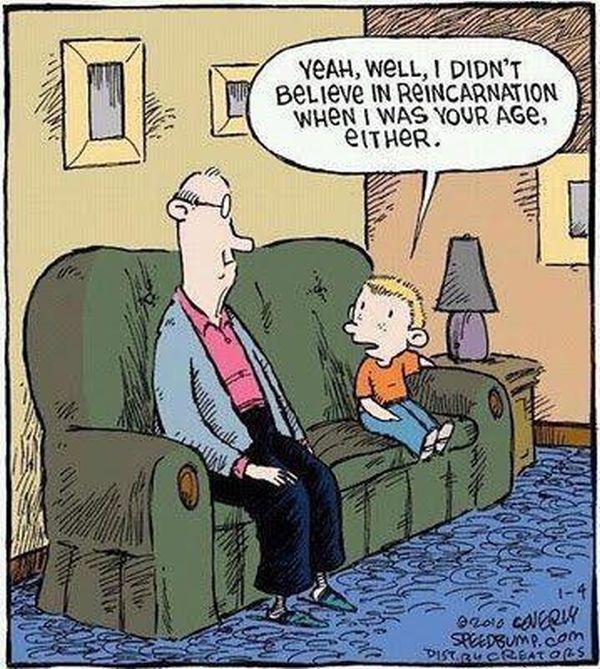The concept of reincarnation has intrigued and captivated human minds for centuries, offering a tantalizing glimpse into the possibility of a continuous cycle of existence. While many may associate reincarnation with spiritual and religious beliefs, the topic has garnered renewed interest in recent times, as individuals from diverse backgrounds and cultures continue to share stories of past-life memories and experiences. In this exploration, we look at the mystery of reincarnation, look at its historical roots, look at scientific inquiries, and look at cases of people who say they have been reincarnated.
A Journey Through Time: Historical Roots of Reincarnation
The idea of reincarnation is not a recent phenomenon; rather, it has roots that stretch back through millennia and across various cultures. The concept can be traced to ancient civilizations such as the Egyptians, Greeks, and Hindus, each with their interpretations of how the cycle of rebirth operates. In Hinduism, for instance, reincarnation is a central tenet of the belief system, where individuals are thought to be reborn based on their karma, the accumulated consequences of their actions in previous lives.
Greek philosopher Pythagoras also entertained the notion of reincarnation, suggesting that the soul undergoes a series of rebirths until it achieves a state of purity and wisdom. These historical perspectives illustrate how the idea of reincarnation has been a cornerstone of philosophical and spiritual thought throughout human history, fostering contemplation on the nature of existence and the continuity of the soul.
Science and Reincarnation: Bridging the Gap
In an era marked by empirical inquiry and rational thinking, the concept of reincarnation may seem incompatible with scientific principles. Nevertheless, some researchers have ventured into exploring the possibility of past-life memories and their implications for human consciousness. Dr. Ian Stevenson, a psychiatrist renowned for his work in this area, conducted extensive studies on cases of children who claimed to remember past lives.
Stevenson’s approach was meticulous and scientific, involving the careful documentation of cases where young children exhibited specific memories, behaviors, and birthmarks seemingly linked to a previous individual’s life. His work yielded intriguing instances, such as children describing details of their claimed past lives that they could not have learned through ordinary means. While skeptics argue that these cases could be attributed to imaginative play or family stories, Stevenson’s dedication to evidence-based research raised questions that continue to intrigue scientists and laypeople alike.
Stories from the Past: Compelling Cases of Reincarnation
The stories of individuals who claim to remember past lives offer a captivating glimpse into the mysteries of the human experience. These cases often share common elements, such as young children recounting vivid memories of lives that appear unrelated to their current circumstances. Among the most intriguing examples is the case of James Leininger, a boy who, from a young age, displayed an obsession with aviation and detailed knowledge of World War II aircraft.
James’s parents were baffled by his extensive knowledge and intense interest in warplanes. As his story unfolded, he began to reveal details about the life of James Huston Jr., a Navy fighter pilot who died during World War II. James’s recollections included specifics about the aircraft he flew, details of battles, and even the names of crewmates. Astonishingly, many of these details were verified through historical records, leading many to wonder if young James Leininger was indeed the reincarnation of James Huston Jr.
Another notable case is that of Shanti Devi, an Indian girl born in the 20th century who claimed to remember her past life as Lugdi Devi, a woman from a different village. Shanti Devi’s detailed accounts of Lugdi Devi’s life, her family, and her village astounded those who heard her story. With the help of Mahatma Gandhi, her claims were investigated, leading to the confirmation of many of the details she provided.
These stories challenge our understanding of memory, consciousness, and the continuity of individual identity. While skeptics point to alternative explanations, such as coincidental resemblances or family influences, the depth and specificity of the recollections in these cases continue to raise thought-provoking questions.
Exploring Possible Explanations
The question of how past-life memories could be transmitted from one existence to another remains a subject of debate and speculation. Several hypotheses attempt to provide insights into this phenomenon, although none have been definitively proven.
Genetic Memory: One intriguing possibility is that past-life memories are somehow encoded in an individual’s genetic makeup. This idea suggests that certain experiences or traumas could leave an imprint on an individual’s DNA, influencing their memories and behaviors in subsequent lives. However, this theory raises questions about the transfer of specific memories and experiences, as well as the mechanisms by which genetic information could be retained across generations.
Collective Unconscious and Archetypes: Psychologist Carl Jung proposed the concept of the collective unconscious—a reservoir of shared experiences and symbols that transcend individual lifetimes. Could past-life memories be accessed through this shared repository of human experience? Some proponents of reincarnation suggest that certain archetypes or symbols may trigger memories from previous lives, providing individuals with glimpses into their pasts.
Quantum Consciousness: Another speculative avenue explores the relationship between consciousness and quantum physics. Some theories propose that consciousness is not solely confined to the brain and may have quantum aspects that extend beyond individual lifetimes. Quantum entanglement and non-locality—phenomena observed at the quantum level—have led to discussions about the potential interconnectedness of consciousness across time and space.
Skepticism and the Scientific Approach
While compelling cases of past-life memories have sparked interest and curiosity, skepticism remains an integral part of the discussion. Skeptics often attribute these cases to coincidences, suggestible children, or the influence of cultural and familial factors. Critics argue that the human mind is highly adept at creating narratives and connections, especially when influenced by cultural narratives or family stories.
Scientific exploration of reincarnation faces challenges in terms of replicability and the subjective nature of memories. Controlled experiments that could definitively prove the existence of past-life memories are difficult to design and conduct, leaving the topic largely within the realm of anecdotal evidence and personal testimonies.
Final Thoughts: The Endless Quest for Answers
The concept of reincarnation continues to be a source of fascination and contemplation, inviting individuals to explore the profound mysteries of existence, identity, and consciousness. While science grapples with the challenge of investigating past-life memories through empirical means, the stories of those who claim to have been reincarnated challenge our understanding of the boundaries of human experience.
Whether one approaches reincarnation with skepticism, openness, or profound belief, it serves as a reminder that the human journey is marked by unending curiosity about life’s deepest questions. As we strive to unravel the mystery of reincarnation, we may discover not only insights into the nature of existence but also a renewed appreciation for the vastness of the human spirit and its enduring quest for understanding.




